Law 29 U.S.C.A 216 (a), (b) and (c)
According to section 29 U.S.C.A 216 (a), (b) and (c), and prior to starting the lawsuit, consent shall be given in writing. and this consent shall be signed after the audit has been completed by the department of labor. Judge and Jonathon Bernstine have violated Harry’s Nurses Registry Inc and Harry Dorvilier’s 14 amendments by not following the due process of law.
Section 216(b) of Title 29 provides for an employer’s civil liability for violations of 29 U.S.C. § 215, the case should get Consent Judgment though DOL, IRS, and Other parties but that was absent. 2456.29 U.S.C. 201 To 219 -Fair Labor Standards Act
Research showed that the consent judgment was missing
Research on “Employee Or Independent Contractor? Enforcement Efforts Increase In The Home Health Care Industry” including Gayle v. Harry’s Nurses Registry, Inc., (Mar. 9, 2009) case By Kara M. Maciel on January 9, 2012 found that the consent judgment was missing.
Research on “Employee Or Independent Contractor? Enforcement Efforts Increase In The Home Health Care Industry” link
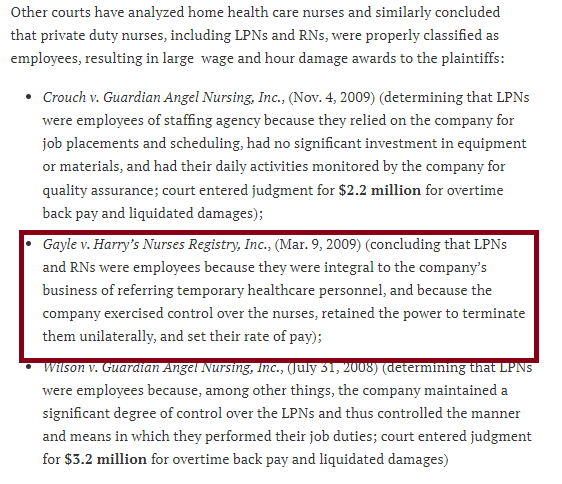
Consent: Who and why it needs to be followed!
According to the FLSA, 29 U.S. Code § 216. Penalties, No employee shall be a party plaintiff to any such action unless he gives his consent in writing to become such a party and such consent is filed in the court in which such action is brought. The court in such action shall, in addition to any judgment awarded to the plaintiff or plaintiffs, allow a reasonable attorney’s fee to be paid by the defendant, and costs of the action. Therefore, it can be said that consent is the prior factor to enforce the violation of section 29 U.S. Code § 216. And this consent shall come from the audit of the Department of Labor.
(i) William E. Brock v. Superiror Care Inc. – 776 consents
(ii) Crouch v. Gurdian Angel Nursing, Inc. final-judgement-132 consents 3-07-cv-00541
(iii) Wilson-v-Guardia-Angel-final-judgement-287 Consents
(iv) Three consents enforcement by the department of labor of 29 U.S.C. 216 (b); LeMaster et al v. Alternative Healthcare Solutions by six circuit
Enforcement (287 consents) by the department of labor of 29 U.S.C. 216 (b) Wilson v. Guardian Angel Nursing Inc. 287 enforcement consents by six circuit
a) MEMORANDUM OPINION:Wilson v. Guardian Angel Nursing Inc.
b) Summons and Complaints:Wilson v. Guardian Angel Nursing, Inc
c) Wilson-v.-Guardian-summons and complaints-16-21
d) The satisfaction of judgment:Wilson v Guardian Angel final judgment
e) Jenno Wilson v Guardian Angel Order:Wilson v Guardian Angel Order Paper
This is harassment by the government against Harry Dorvilier and Harry’s Nurses Reg.
Gayle v. Harry’s Nurses Registry Inc. breaks the law. details here.
People vs Harry Dorvilier and Harry’s Nurses Registry inc.
This is a harassment by the government against Harry Dorvilier and Harry’s Nurses Reg. Mr. Harry Dorvilier paid $25000.00 for 13 nurses and again Harry’s Nurses Reg. had to pay 13 felonies for $26000.00 and another 13 felonies for Harry’s Nurses Reg. $26000.00.
People vs Harry’s Nurses Registry inc. Supreme Court- State of New York Ind. No 1709/10
Fake summons and complaints initiated by a private attorney Jonathan Bernstein along with a ghost alien Claudia Gayle to the federal court in November 2007 where he collaborated with the Inspector General of Insurance Board Mr. William Gurin, District Attorney, Workers’ Compensation Board, and City Police Department. Mr. Gurin sent a blank letter to the DA for the prosecution of a fake summons and complaints that exploded by a press conference.
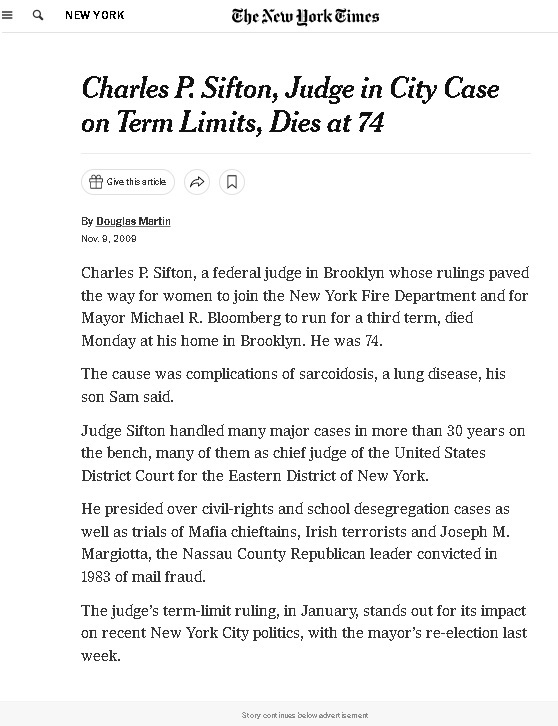
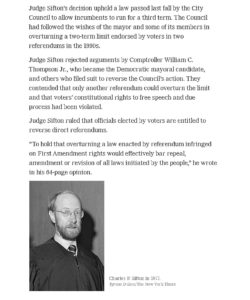
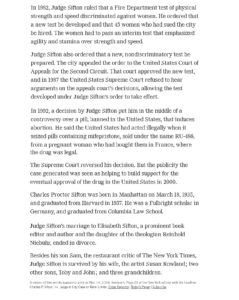
Violation of 14 amendment
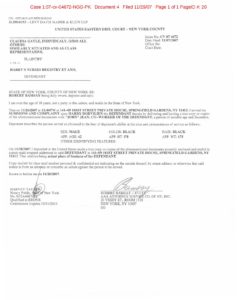
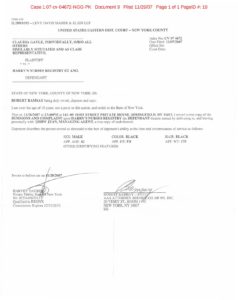
Notice of Appearance & Affirmation of Service
gayle notice of appearance for defendants
The cause was complications of sarcoidosis, a disease in which lesions form in the lungs and other organs, said his son Sam.
Judge Sifton handled many major cases in more than 30 years on the bench, many of them as chief judge of the US District Court for the Eastern District of New York.
He presided over civil rights and school desegregation cases, as well as trials of Mafia chieftains, Irish terrorists, and Joseph M. Margiotta, the Nassau County Republican leader convicted in 1983 of mail fraud.
The judge’s term-limit ruling, in January, stands out for its impact on recent New York City politics, including the mayor’s reelection last week.
Judge Sifton’s decision upheld a law passed last fall by the City Council to allow incumbents to run for a third term.
The Council had followed the wishes of the mayor and some of its members in overturning a two-term limit endorsed by voters in two referendums in the 1990s.
Judge Sifton rejected arguments by Comptroller William C. Thompson Jr., who became the Democratic mayoral candidate, and others who filed suit to reverse the council’s action.
They contended that only another referendum could overturn the limit and that voters’ constitutional rights to free speech and due process had been violated.
Judge Sifton ruled that officials elected by voters are entitled to reverse direct referendums. “To hold that overturning a law enacted by referendum infringed on First Amendment rights would effectively bar repeal, amendment, or revision of all laws initiated by the people,’’ he wrote in his 64-page opinion.
In 1982, Judge Sifton ruled that a Fire Department test of physical strength and speed discriminated against women. He ordered that a new test be developed and that 45 women who had sued the city be hired.
The women had to pass an interim test that emphasized agility and stamina over strength and speed.
Judge Sifton also ordered that a new, nondiscriminatory test be prepared. The city appealed the order to the US Court of Appeals for the Second Circuit. That court approved the new test, and in 1987 the US Supreme Court refused to hear arguments on the appeals court’s decisions, allowing the test developed under Judge Sifton’s order to take effect.
In 1992, a decision by Judge Sifton put him in the middle of a controversy over a pill, banned in the United States, that induces abortion.
He said the United States had acted illegally when it seized pills containing mifepristone, sold under the name RU-486, from a pregnant woman who had bought them in France, where the drug was legal.
The Supreme Court reversed his decision. But the publicity the case generated was seen as helping to build support for the eventual approval of the drug in the United States in 2000.
Charles Proctor Sifton was born in Manhattan and graduated from Harvard in 1957. He was a Fulbright scholar in Germany and graduated from Columbia Law School.
He worked on the staff of the Senate Foreign Relations Committee and in the office of the US attorney in Manhattan, where his last position was chief appellate lawyer. He then worked in private practice.
President Carter appointed him a federal judge in 1977. Unlike many federal judges, he had never belonged to a political organization.
Judge Sifton’s first marriage to Elisabeth Sifton, a prominent book editor, and author, ended in divorce.
Besides his son Sam, the restaurant critic of The New York Times, Judge Sifton leaves his wife, artist Susan Rowland; two other sons, Toby and John; and three grandchildren.
Subject Matter Jurisdictions 28 U.S.C. $ 1331
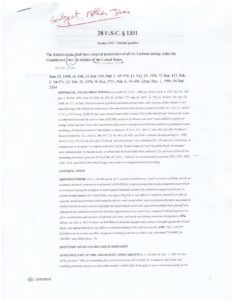
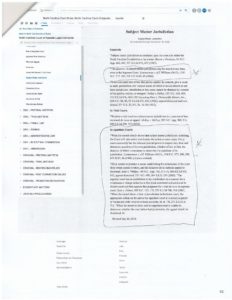
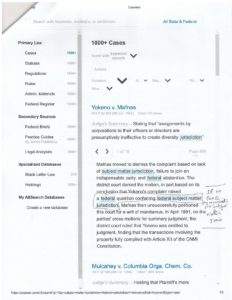
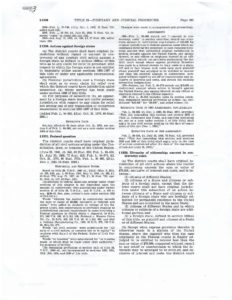
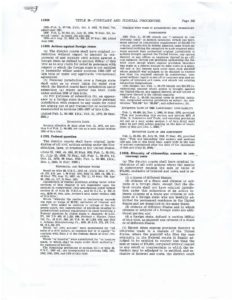
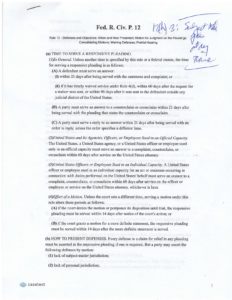
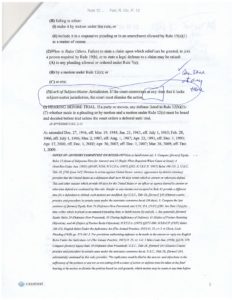
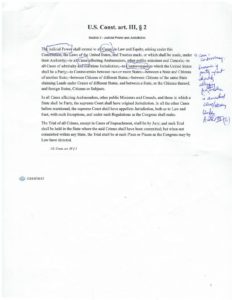
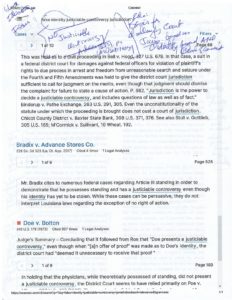
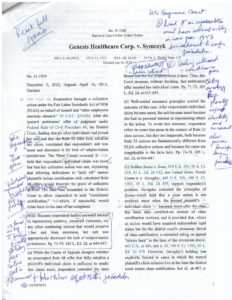
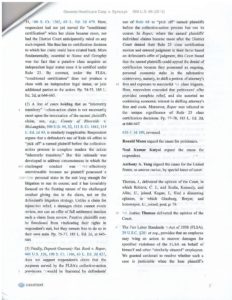
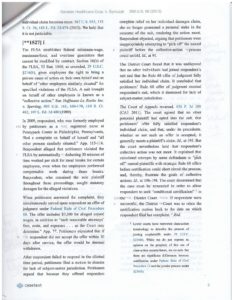
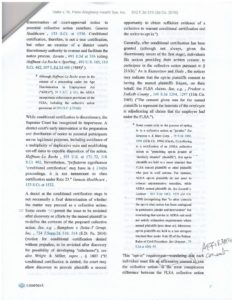
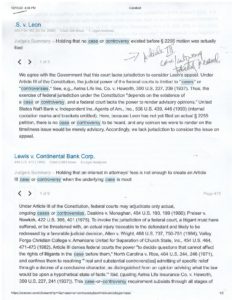
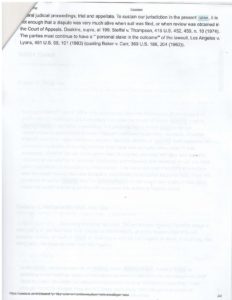
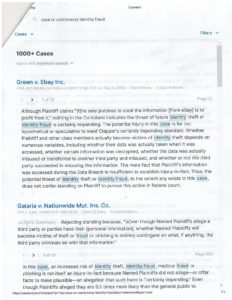
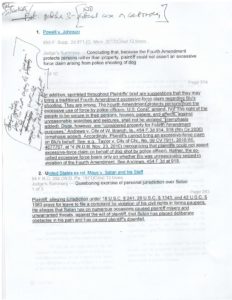
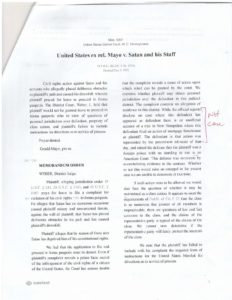
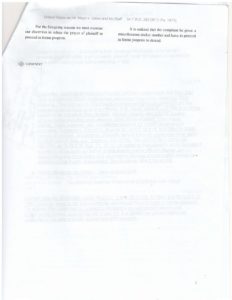
Subject Matter Jurisdictions 2
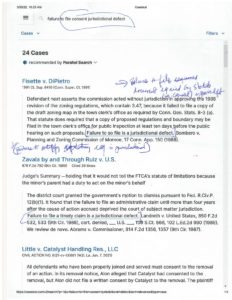
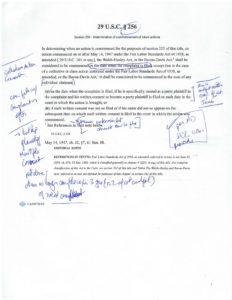
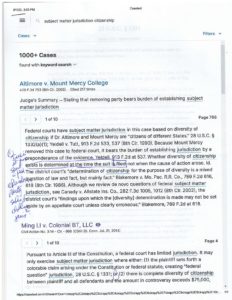
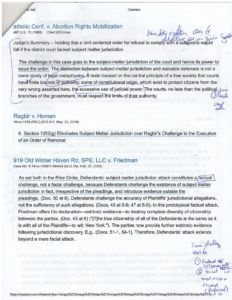
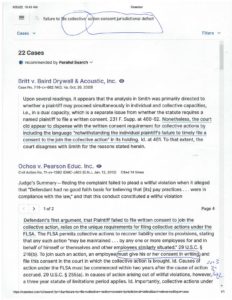
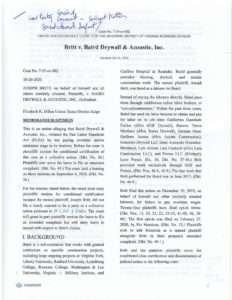
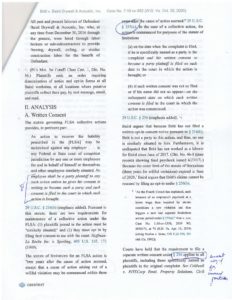
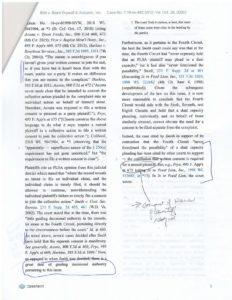
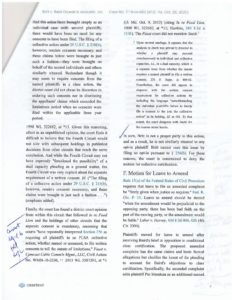
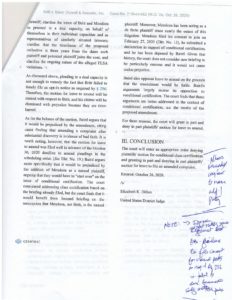
Link: https://www.nytimes.com/2009/11/10/nyregion/10sifton.html
Gayle v. Harry’s Nurses Registry, Inc.
Case No. 12-4764: Our File No. 22424
( renewed motion to recall mandate)
Click the link below to read:
10.16.23 Letter – Gayle v. Harry’s Nurses Registry, Inc., 12-4764
Gayle Plaintiffs’ Reply Memorandum of Law in Further Support of Motion for Attorneys’ fees and Costs
309 (1)
Click the link below to read:
https://www.docketalarm.com/cases/New_York_Eastern_District_Court/1–07-cv-04672/Gayle_v._Harry%27s_Nurses_Registry_Inc._et_al/309/
Perry Lott emotional as conviction is vacated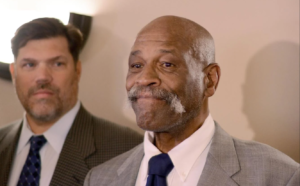
Link: https://www.theadanews.com/news/local_news/perry-lott-emotional-as-conviction-is-vacated/article_178b4ff6-6873-11ee-b270-afced75cb3c5.html
12-4764 Gayle v. Harry’s Nurses Registry, Inc. “Motion FILED to recall mandate”
lINK: Filed RMRM and Exhs













































